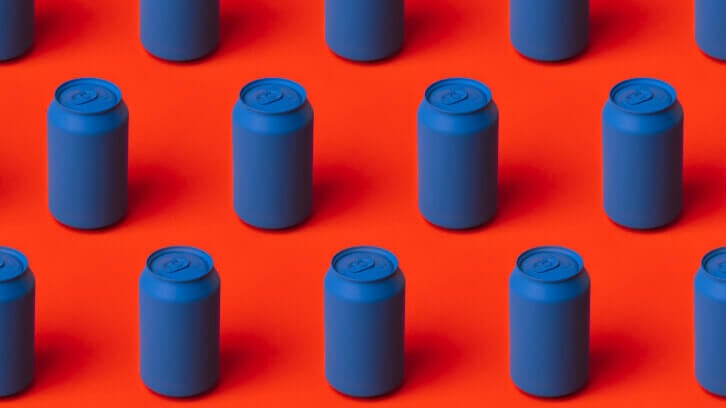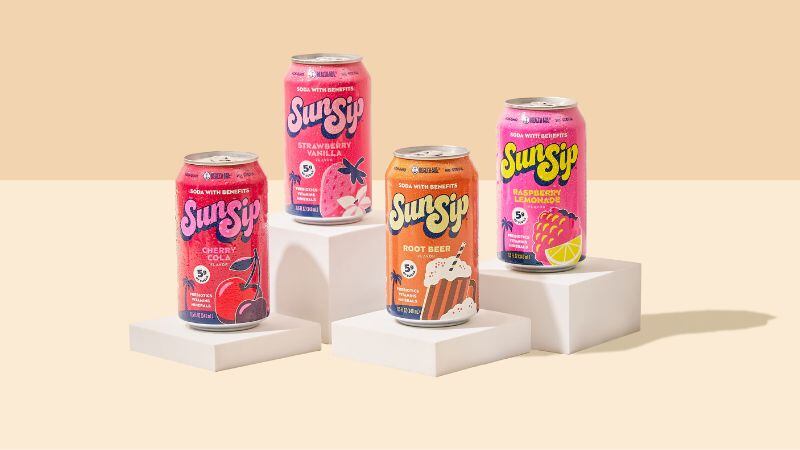The lawsuit alleges a consumer purchased Poppi because of the slogan “Be Gut Happy. Be Gut Healthy.” However, she alleges, a single serving of the soda does not contain enough prebiotic fiber to deliver a gut health benefit, and she is seeking monetary relief for herself and similar customers.
The slogan cited in the lawsuit no longer appears on Poppi’s website. Likewise, a callout “For a Healthy Gut,” previously featured in a circle on the top of the primary display panel, has been replaced with one highlighting the grams of sugar in the can.
Poppi told the Associated Press that “the lawsuit is baseless,” and it plans to “vigorously defend [itself] against these allegations.” It added, “We are on a mission to revolutionize soda for the next generation of soda drinkers, and we have diligently innovated to provide a tasting experience that millions of people have come to enjoy.”
Poppi did not respond to FoodNavigator-USA’s request for comment by press time for this article.
Poppi’s meteoric rise underscores consumer interest in gut-health
Since its inception in 2015, Poppi’s prebiotic sodas, which contain apple cider vinegar and inulin, contributed significantly to the $50 billion-plus functional soda category as consumers seek out low to no sugar beverages offering benefits around digestion, immunity, energy and hydration, among others, according to Euromonitor data.
Poppi represents 19% of the US market share as of this year and has generated more than $100 million in retail sales with a nationwide presence in more than 120 retailers, including 7-Eleven, Costco, Kroger, Target and Whole Foods.
“Poppi’s success shows an immense consumer interest in gut-healthy sodas,” Hannah Ackermann, a registered dietitian and VP of marketing & nutrition affairs, Comet, told FoodNavigator-USA. Comet sells dietary fibers.
Prebiotics feed the body’s microflora, which can improve overall health, according to the MayoClinic. Research has shown potential health benefits of prebiotics around digestion, metabolism, mineral absorption and inflammation, among others, underscoring consumers' interest in functional foods in convenient formats.
‘A watershed moment for the prebiotics industry’
The lawsuit argues that Poppi’s sodas contain 2 grams of prebiotic fiber, “an amount too low to cause meaningful gut health benefits for the consumer from just one can,” and to “realize any potential health benefits,” a consumer would need to drink “more than four Poppi sodas” daily for “21 consecutive days.”
Each can of Poppi has 4-5 grams of cane sugar according to its Nutrition Facts Panel and consuming four cans of the soda a day would result in 16-20 grams of sugar a day. The higher sugar consumption “has been show to actually harm gut health,” according to the complaint.
Ackermann emphasized that the lawsuit could prompt the industry to reconsider how to market prebiotics more clearly.
“This lawsuit is a watershed moment for the prebiotics industry, as it forces the industry to take a step back and align on how to define and market prebiotics to consumers. Prebiotics can benefit millions of consumers struggling with gut health issues, but we must formulate and market products responsibly,” she said.
Ackermann continued, “The company’s choice to incorporate 2 grams of inulin into its product may be a positive step. Still, this inclusion level falls short of substantial health benefits, as per inulin research.”
Determining structure function claims around inulin dosage and its effects
While consumers choose Poppi for its perceived health benefits, the high sugar content undermines those benefits, according to the lawsuit.
The Federal Trade Commission (FTC) regulates structure function claims of a product, which describes how a product affects the structure or function of the body, but does not explicitly mention a disease or health condition unless backed by scientific evidence. Per FTC regulations, food manufacturers must substantiate their claims as truthful and not misleading.
With Poppi’s alleged positioning as a gut-healthy soda, the lawsuit hinges on whether the structure function claims the suit says Poppi made about prebiotics are misleading because the amount of prebiotic fiber is arguably too low to deliver the advertised benefits.
While previous versions of Poppi’s packaging communicated the soda’s prebiotic and gut health benefits, the company’s current packaging does not mention claims about gut health.
With higher doses, around 7.5 grams, inulin can cause gastrointestinal issues, Ackermann said. Nutritionists quoted in the lawsuit added that inulin “can lead to inflammation and liver damage,” and is “not the same as insoluble fiber.”
Ackermann suggested that the lawsuit “underscores the necessity for innovative prebiotic ingredient alternatives that offer efficacy at lower doses and are more seamlessly integrated into formulations” without impacting pH stability.
For example, Comet’s soluble fiber Arrabina, which is an arabinoxylan prebiotic fiber blend, has a “prebiotic effective level of 3.4 grams” and is “gentle on the stomach even at 15 grams,” Ackermann said.
“Inulin’s stability is also a concern for prebiotic sodas. Many popular prebiotic dietary fibers used in sodas, including inulin, can break down into simple sugar and become less effective at higher temperatures. This is especially concerning given that consumers are turning to these sodas as lower-sugar alternatives,” she explained.
Ackermann continued, “According to reports, pH stability is also an issue for many prebiotic dietary fibers, which can degrade in more acidic environments. Prebiotic dietary fibers’ heat and pH stability also represent a problem during the pasteurization and retort parts of the beverage manufacturing process. Brands can mitigate this issue by overdosing prebiotic dietary fiber in formulations, assuming that a certain percentage will degrade. Additional ingredient cost is one of the chief drawbacks of this practice.”


